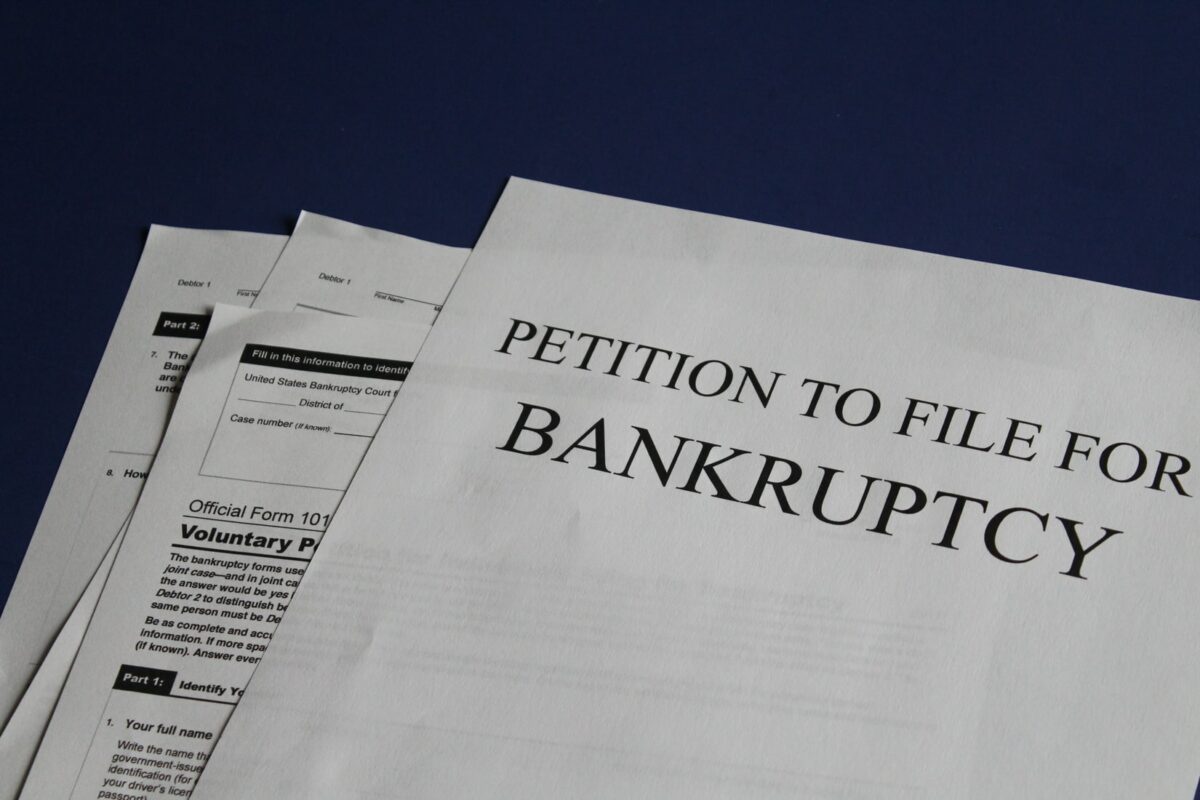Are you a sole proprietor, a single-member LLC, or a married couple in a partnership? You might be surprised to learn that you can reorganize both business and personal debt, get protection from collection efforts, repossessions, foreclosures, and lawsuits, and get personal and business debt discharged by filing one individual Chapter 13 bankruptcy petition.
Read on for the benefits and potential pitfalls of filing Chapter 13 as a small business owner. This information is from the office of a noted Springfield bankruptcy attorney.
Post Contents
What is Chapter 13 Bankruptcy?
Chapter 13 bankruptcy is called “reorganization bankruptcy” because it helps debtors reorganize their debt by catching up with arrears over a three- or five-year repayment plan, administered by the Chapter 13 Trustee.
The moment the Chapter 13 petition is filed, the automatic stay is in effect. The automatic stay “stays” or stops all creditor action against the debtor and the debtor’s business, including but not limited to:
- Collection calls and dunning letters;
- Collection lawsuits;
- Foreclosures;
- Repossessions;
- Wage garnishments;
- Levies on bank accounts;
- The filing of judgment liens on real property.
The debtor can pay debt such as mortgage arrears, auto loan or lease arrears, student loan arrears, equipment or supply arrears, past-due sales tax and government fines and fees, and some or all of their Chapter 13 legal fees through their Chapter 13 plan.
At the completion of the plan, when the debtor has paid all plan payments in full, their unpaid unsecured debt is discharged. This means that neither the debtor nor the business are responsible for repaying that debt.
How Does Chapter 13 Work for Small Businesses
Chapter 13 works for business as it does for individuals, except that a qualifying small business owner will include business as well as personal information, income, expenses, debt, and assets. The business will continue to operate throughout the Chapter 13 case.
The steps to filing a Chapter 13 small business case are:
- Amass all information regarding income, expenses, assets, and debts:
- Draft a Chapter 13 petition, schedules, creditor list, and proposed three- or five-year plan:
- Take the pre-filing credit counseling course:
- File the Chapter 13 petition, schedules, creditor list, proposed plan, and certification of completion of the credit counseling course with the court;
- Begin to pay the Trustee each month per the terms of the proposed plan;
- Attend the 341(a) meeting of creditors with the Chapter 13 Trustee;
- Have the proposed plan confirmed by the court after any creditor objections are resolved;
- Increase or decrease the plan payment according to any changes that had to be made to the plan;
- Take the post-filing financial management courts, also called the debtor education course;
- File the course completion certification with the court;
- Make all plan payments under the confirmed plan in full and timely;
- Receive a discharge of unpaid unsecured debt once the plan is paid in full;
- Case closes.
Why Chapter 13 is Advantageous for Small Business Owners
Personal, as well as Business Debt, is Reorganized and Discharged
Small business owners who are sole proprietors, married couples in a partnership, or who organized their business as a single-member LLC can file Chapter 13 bankruptcy and include both business and personal debt because they are considered one and the same entity as their business for tax purposes.
Filing Chapter 13 is Simpler and Less Expensive than Filing Chapter 11
Owners of other types of businesses such as partnerships (if not married couples), multi-member LLCs, and corporations must file bankruptcy under Chapter 11, and their personal debt obligations are not included. Chapter 11 is far more expensive, more complex procedurally, and requires more court oversight than Chapter 13.
What are the Benefits of Chapter 13 Bankruptcy for Small Business Owners?
- Because both personal and business debt obligations are included, personal loan guarantees are also discharged;
- You can pay both personal and business loan arrears through your plan;
- A second mortgage or HELOC can be “stripped off” and discharged as unsecured if the first mortgage balance exceeds the current market value of the property;
- A car can be “crammed down” to retail value as of the date of filing and paid off at prime plus 1-3% interest through the plan, if the loan balance and/or the applicable interest rate exceeds the retail value and/or prime plus 1-3%;
- Getting some unsecured debt discharged may make paying non-dischargeable debt, such as sales tax, support payments, and student loans, more affordable.
What are the Potential Pitfalls of Chapter 13 Bankruptcy for Small Business Owners?
- Student loan debt is not discharged;
- Support obligations are not discharged;
- Certain taxes and government fines and fees are not discharged;
- Divorce proceedings are stayed while the Chapter 13 case is active;
- Co-debtors are not discharged of their obligations, and your bankruptcy may put them in default;
- If your business does not generate the income you need to fund your Chapter 13 plan, you may need to modify that plan or convert to Chapter 7;
- Your bankruptcy filing will affect your personal credit and your business credit.
What if I Do Not Have Enough Income to Fund a Chapter 13 Plan?
If you find that after a time your business does not generate enough income to continue to fund your plan, you can either file a modified plan or you can convert to Chapter 7. If your business does not have the income to initially file under Chapter 13, you can file under Chapter 7.
Chapter 7 is called “liquidation bankruptcy” for a reason – the Chapter 7 Trustee has the power and the obligation to seize all of your non-exempt assets and sell them for the benefit of your creditors. However, you can apply your personal “exemptions” to keep personal and business assets out of the hands of the Trustee if you are a sole proprietor, a single-member LLC, or a married couple owning a partnership.
Know that even though both your personal and business debt is discharged in a Chapter 7 case, your business will cease to exist as it was. However, this in no way prevents you from opening another business, even the same type of company as before.
Good luck!






























